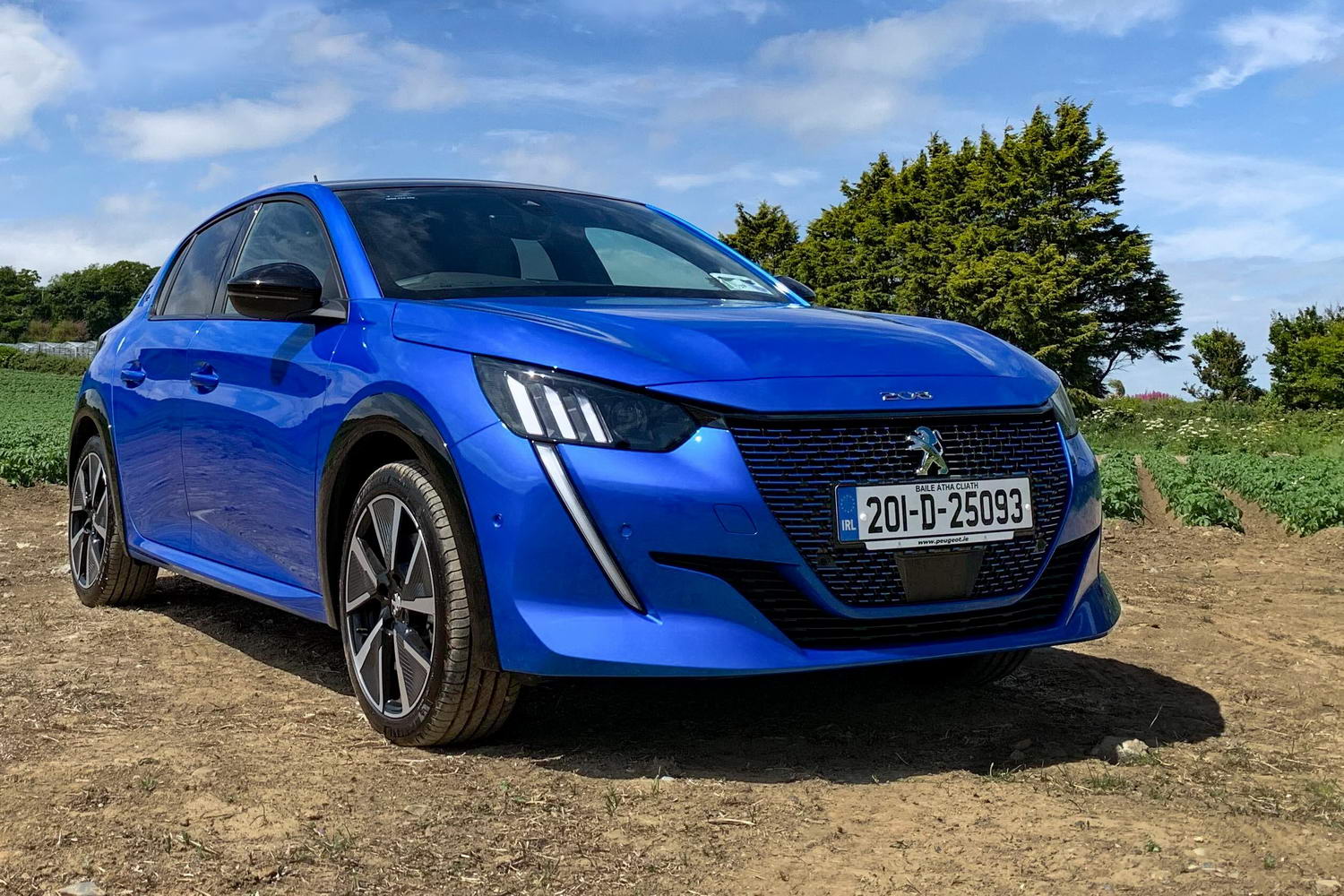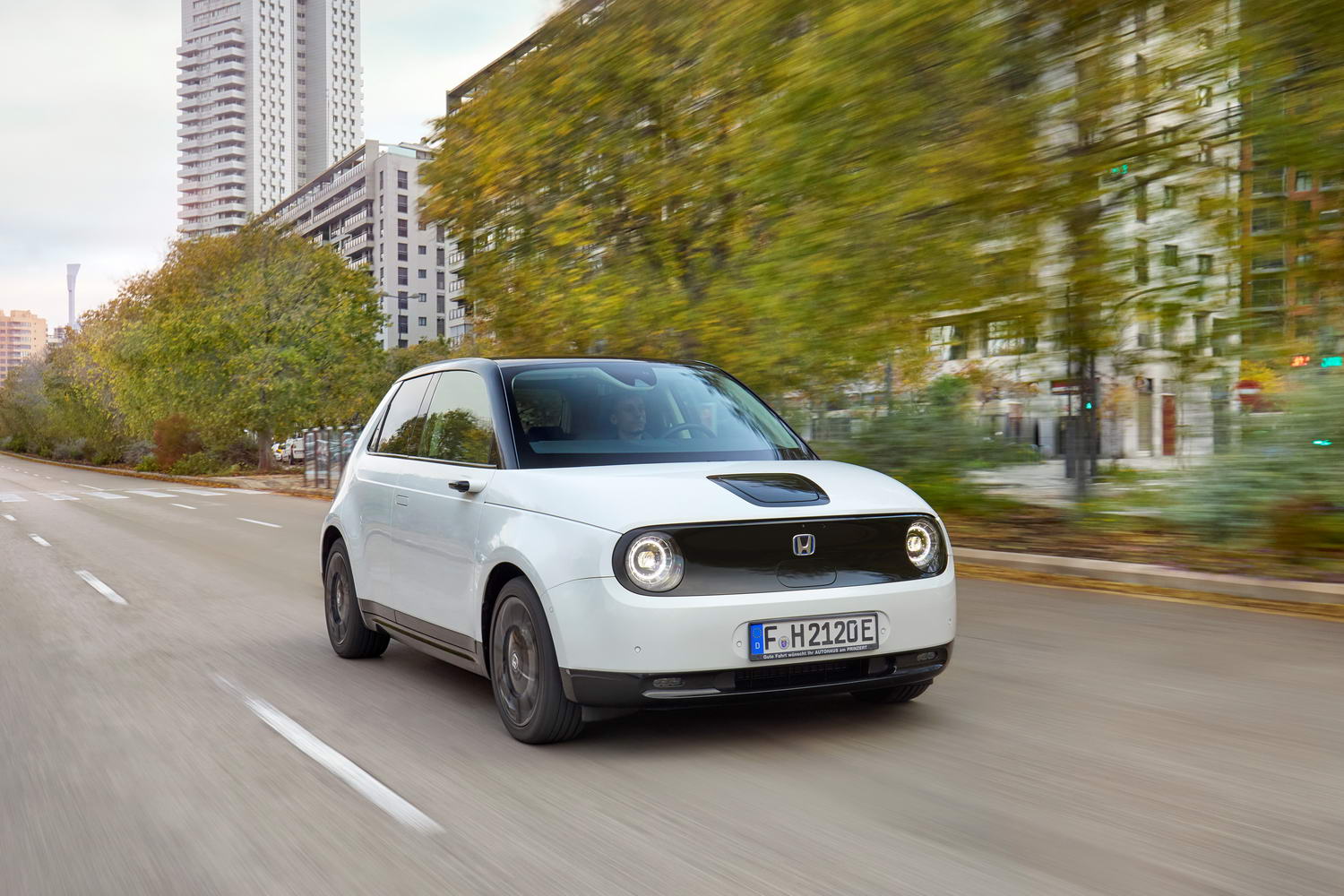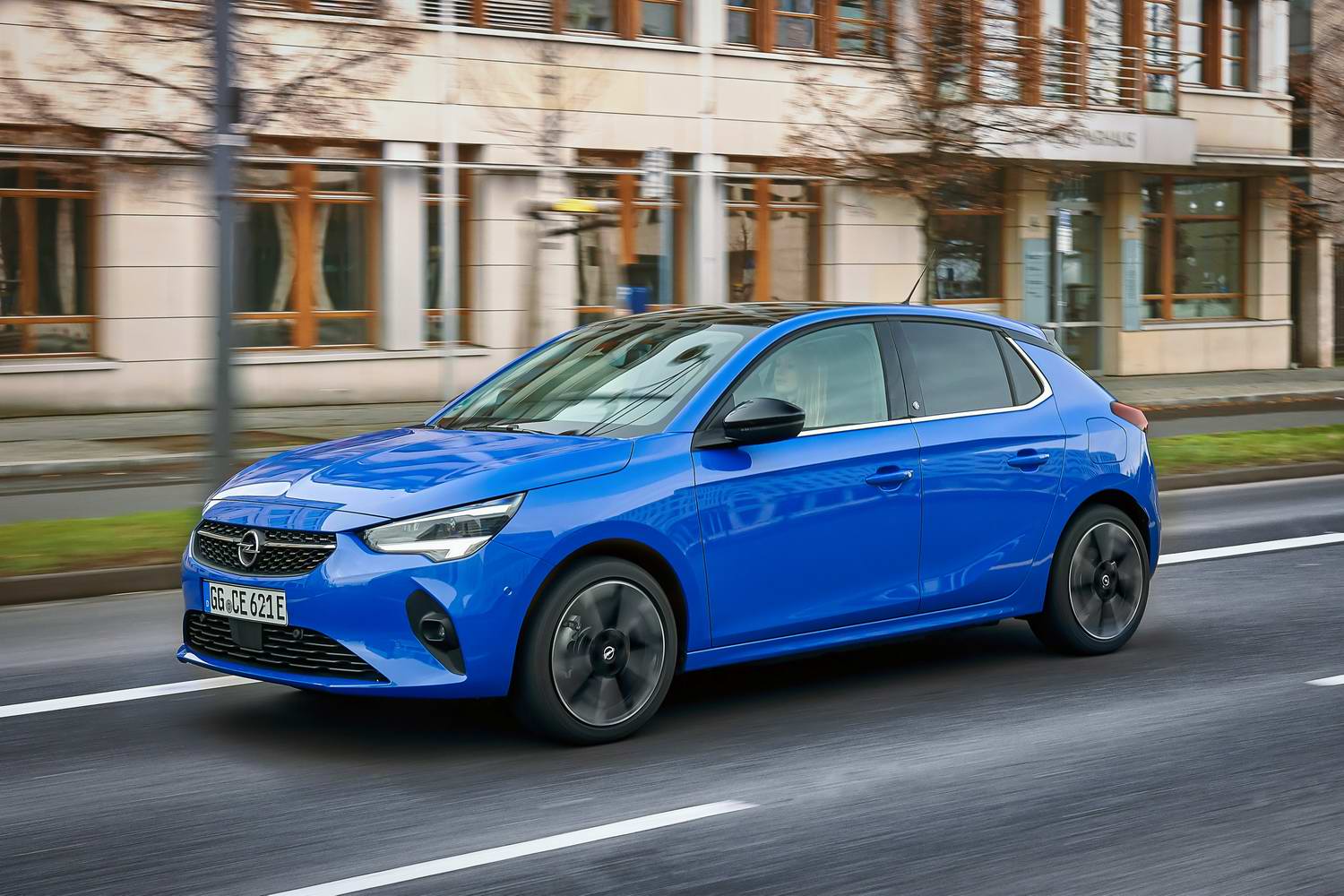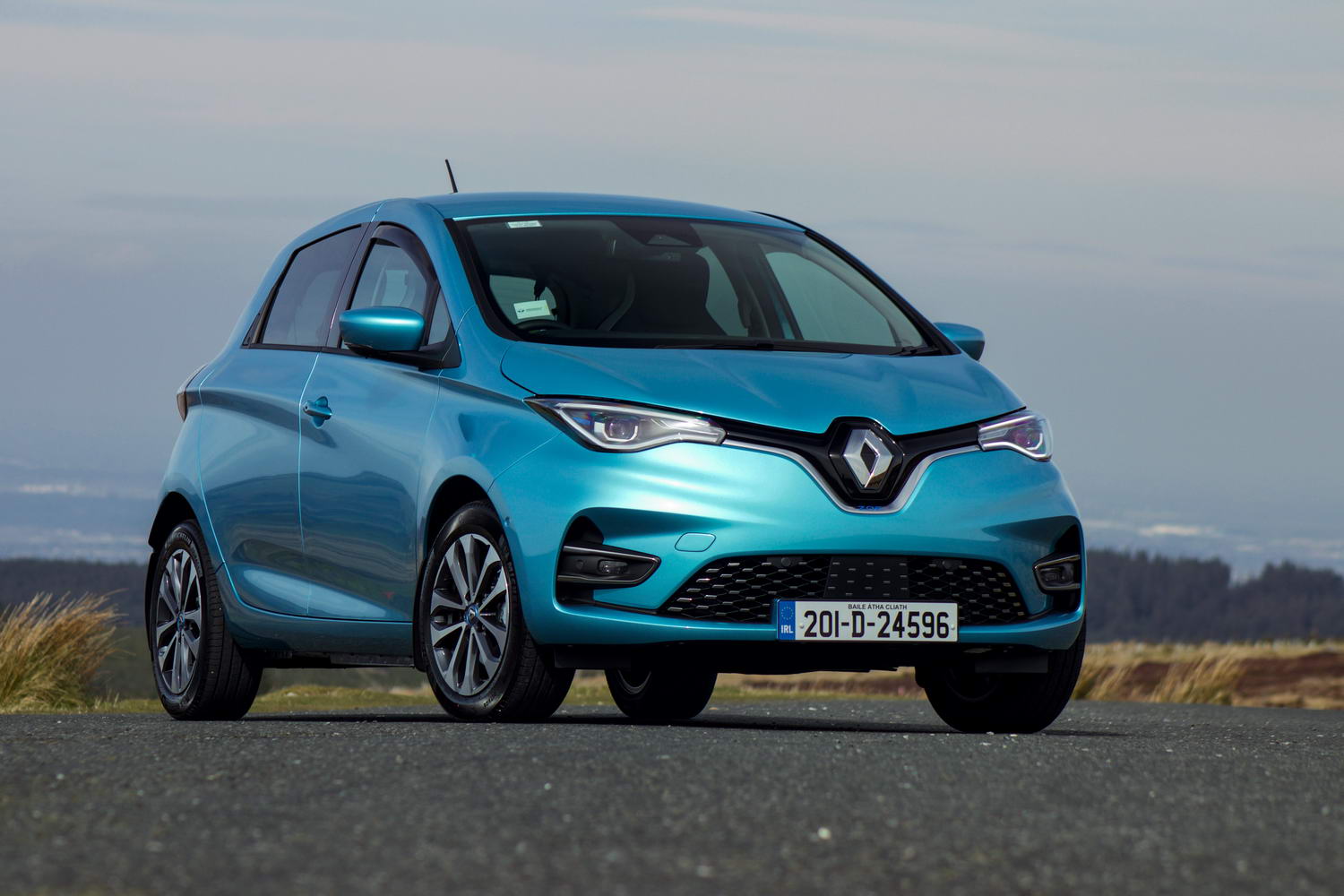What are you driving?
This is the electric version of the new Peugeot 208 and it's one of the most interesting new cars on the road. Interesting not only because it's rather handsome and mildly sporty, but because it's an electric car that has conventional petrol and diesel stablemates. Unlike Volkswagen, which is for the most part creating bespoke electric car platforms and chassis, PSA is going down the route of building platforms capable of handling multiple powertrains. Thus, goes the theory, as the market shifts towards electric power, you can dial down the combustion engine build (and investment) and dial up the batteries.
Visually, there is almost no difference between the electric 208 and the more conventional versions. The only way you'll tell them apart is that the e-208 has a fancier grille than standard, and there's a subtle e-badge on the rear pillar.
You can buy the Peugeot e-208 in the same Active, Allure and GT-Line specs as the other cars, and there's a standalone GT model, available only with electric power, which is the one we're testing here. As standard, the electric 208 has more equipment than an equivalent, basic, Active, including extended active safety braking functions, automatic air conditioning, electric parking brake and special alloy wheels. Those might help soften the blow of a €9,000 premium over and above the price of an entry-level 1.2 petrol 208 Active.
The GT model comes with as much equipment as you can throw at a 208, including 3D digital instruments, adaptive cruise control, lane keeping, keyless entry and ignition, special Alcantara seat trim (they're heated seats, too) and 17-inch alloy wheels. It's impressive stuff, but it does cost a hefty €32,980.
Name its best bits
Well, for a kick-off, the e-208 is a really good-looking car. Actually, the new Peugeot 208 in general is very good looking, but the e-208 GT's extra few body add-ons and nice 17-inch alloys sharpen things up further. While it uses a lot of the same styling cues as the slightly-larger 2008 crossover, I reckon the same lines look much nicer on the 208, slightly softer somehow.
In the cabin, it's a bit of a mixed bag, or at least it is if you're of a conservative frame of mind. There's a lot going on inside, from two digital displays (the digital instrument binnacle and the seven-inch central touchscreen), to the way the shapes of the dash project outwards into the cabin, to the broad sweeps of imitation carbon fibre. It's almost jarring from some angles, and certainly distinctive, but you can imagine some people being put off by the confluence of surfaces and shapes. For what it's worth, I kinda love it - it's far more distinctive than the cabins of most other rivals, and better yet it's really well built, with palpably high quality in every surface. Great seats too.
Of course, the biggest question for any electric car, at least until we get a proper, on-every-corner, in-every-parking-space, charging network, is 'how far will it go?' The answer is: surprisingly far. The official WLTP range is a healthy 340km from the 50kWh battery, which is stored under the floor so that there's no impinging on cabin nor boot space. In real-world conditions, you should expect to get at least 300km out of each full charge, although that does fall closer to 200km if you're spending all day on the motorway. We did find that the e-208 can make it on my regular long commute from Belfast to Dublin in one go, but the range was getting a little tight towards the end.
Happily, with a maximum charging speed of 100kW, the e-208 gulps down electrons from a public fast charger. Even from a basic 50kW charger, it can be charged up from half to full in about 40 minutes. Charging at home, from empty, using a 7.4kW wallbox, takes just under eight hours.
Performance is solid, if perhaps not (forgive me) electric. Peugeot has worked hard to make the e-208 feel like a conventional car to drive, so while there's a solid thump of instant electric torque, it's not a Tesla-like traffic-light-grand-prix winner. Instead, power flows on steadily until at least the national motorway limit. Refinement is good, as you'd expect from an EV, although there is a good bit of tyre noise on coarse surfaces.
The e-208's handling is generally excellent, although that does come with the caveat that you have to allow for the extra 400-odd-kilos that it is packing compared to the 1.2-litre petrol version. Really attack a twisty stretch of road, and you'll feel that weight in longer braking distances, and an occasional lurch as the suspension tries to deal with the weight transfer. Better to take a classical slow-in, fast-out approach, get your braking done early, and use the electric motor's prodigious torque to pull you out past the apex. Then the e-208's dynamic performance really starts to pull together; this is a fun car to drive.
That's helped by steering that's nicely weighted and pretty good at communicating what's under the contact patches of the tyres. The little hexagonal wheel takes a bit of getting used to, but once you've acclimatised, it feels neat and purposeful, and afterwards, other cars' conventional wheels just feel too big.
Anything that bugs you?
Well, obviously, price is a bit of a big issue. At €32,685 this is quite a pricey car, electric or otherwise, and while it has more useable range than the rival Nissan Leaf it's also a smaller car - space in the back is at a bit of a premium.
The only other major issue we have is with the touchscreen - even with the physical shortcut keys under the screen, its operation is still too fiddly, too much of the time, and it's starting to look a little lo-res compared to the crisper, sharper, screens of some rivals.
And why have you given it this rating?
Pricey it might be, but the e-208 swoops in as, instantly, one of our favourite electric cars, maybe even one of our favourite cars. It's agile and enjoyable to drive, looks very smart inside and out and has very useable one-charge range. A bit of a battery star, to be honest.





















